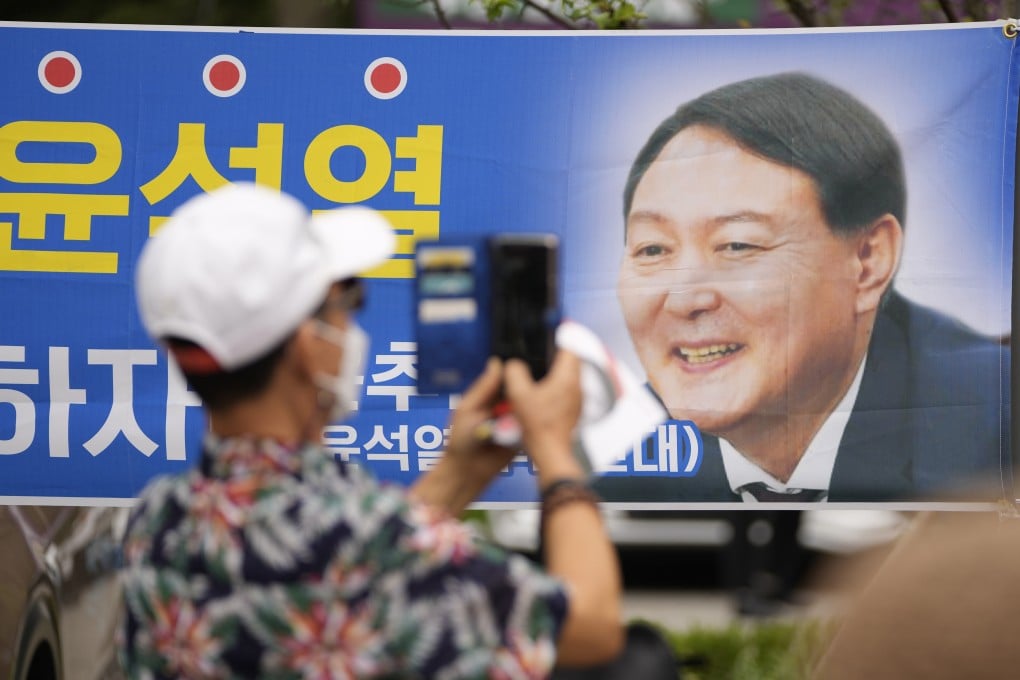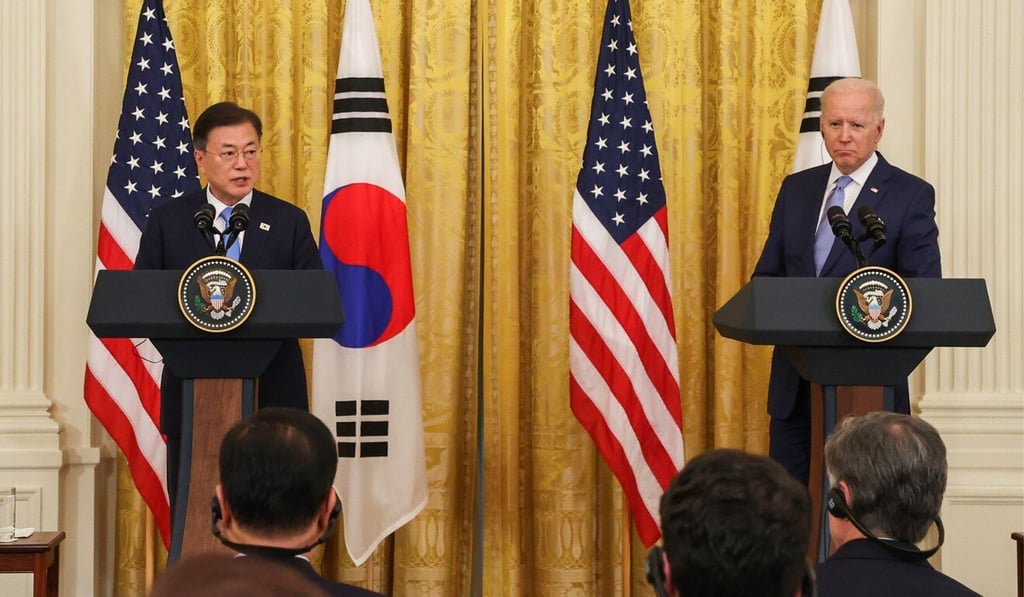South Korean politicians dial up attacks on Moon Jae-in’s US-China balancing act, sparking response from Chinese envoy
- Ex-prosecutor and presidential hopeful Yoon Suk-yeol, and young opposition leader Lee Jun-seok support closer ties with Washington
- China’s Ambassador to South Korea Xing Haiming responded to their comments on China but drew criticism from several commentators

A former top prosecutor seeking a shot at South Korea’s presidency next year has slammed the government of Moon Jae-in for its approach to balancing ties with both the United States and China, saying Seoul should instead pursue a stronger alliance with Washington.
“South Korea’s security and diplomacy should be based on firm alliance with the US, and South Korea-US alliance should be a constant, not a variable,” Yoon Suk-yeol said in an interview with the Joongang Ilbo newspaper published on Wednesday. “But the Moon government has degenerated it to a variable.”
The 60-year-old has constantly polled as the preferred candidate by conservative voters to take over from the liberal President Moon, who has walked a fine line between the US, with which it has a security alliance, and China, its largest trading partner by far.
Moon’s critics have decried the policy known as “strategic ambiguity”, as Washington tries to rally its allies to cooperate with it to counter Beijing’s growing influence.
Yoon, in his comments to the newspaper, said Seoul could no longer maintain that policy “in the face of mounting international rivalry where semiconductors are replacing guns and swords as weapons”, and suggested it should pick a side.
“There must not be any light in South Korea-US relations, and given that close relation with the US, other countries like China will pay attention to us,” he said.
